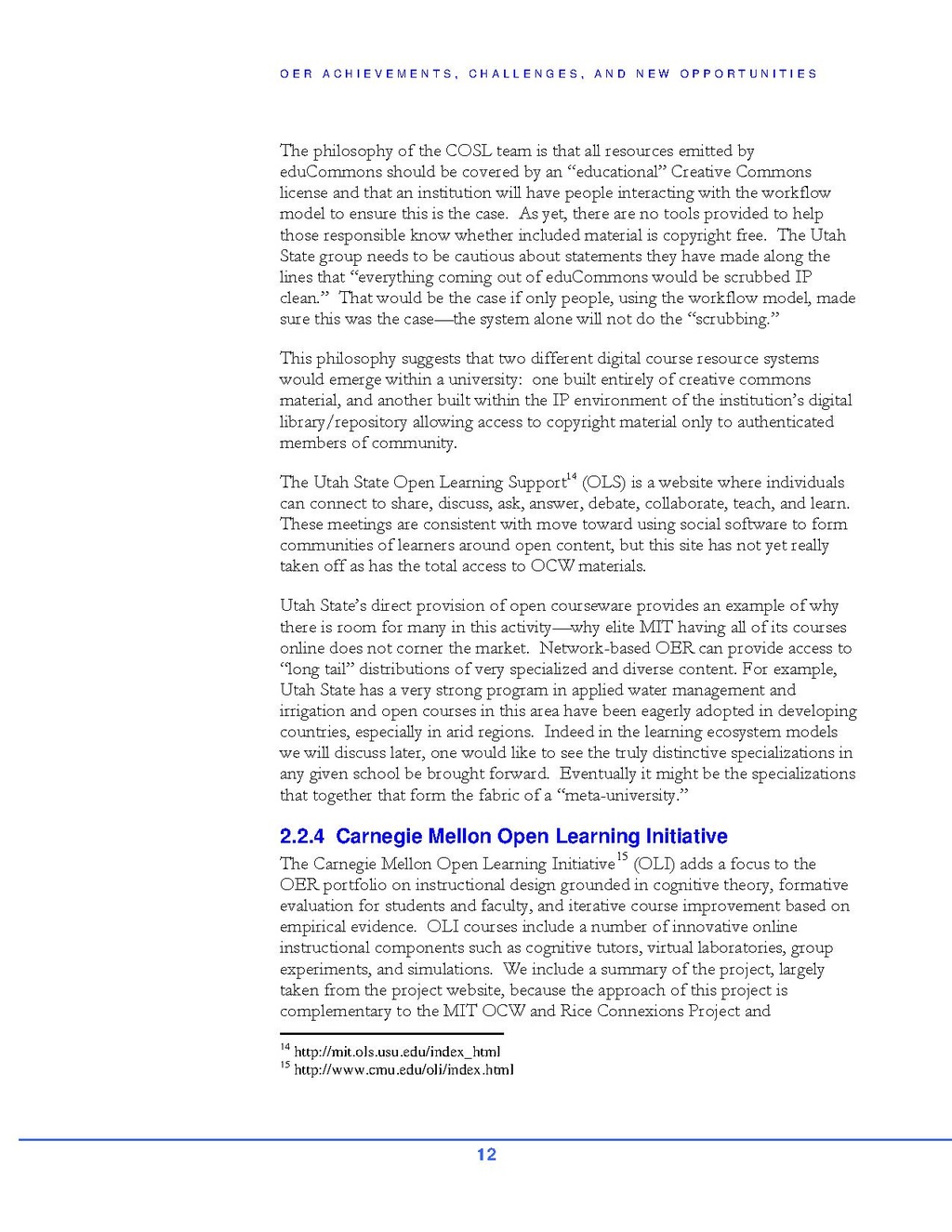OER ACHIEVEMENTS, CHALLENGES, AND NEW OPPORTUNITIES
The philosophy of the COSL team is that all resources emitted by eduCommons should be covered by an "educational" Creative Commons license and that an institution will have people interacting with the workflow model to ensure this is the case. As yet, there are no tools provided to help those responsible know whether included material is copyright free. The Utah State group needs to be cautious about statements they have made along the lines that "everything coming out of eduCommons would be scrubbed IP clean." That would be the case if only people, using the workflow model, made sure this was the case—the system alone will not do the "scrubbing."
This philosophy suggests that two different digital course resource systems would emerge within a university: one built entirely of creative commons material, and another built within the IP environment of the institution's digital library/repository allowing access to copyright material only to authenticated members of community.
The Utah State Open Learning Support[1] (OLS) is a website where individuals can connect to share, discuss, ask, answer, debate, collaborate, teach, and learn. These meetings are consistent with move toward using social software to form communities of learners around open content, but this site has not yet really taken off as has the total access to OCW materials.
Utah State's direct provision of open courseware provides an example of why there is room for many in this activity—why elite MIT having all of its courses online does not corner the market. Network-based OER can provide access to "long tail" distributions of very specialized and diverse content. For example, Utah State has a very strong program in applied water management and irrigation and open courses in this area have been eagerly adopted in developing countries, especially in arid regions. Indeed in the learning ecosystem models we will discuss later, one would like to see the truly distinctive specializations in any given school be brought forward. Eventually it might be the specializations that together that form the fabric of a "meta-university."
2.2.4 Carnegie Mellon Open Learning Initiative
The Carnegie Mellon Open Learning Initiative[2] (OLI) adds a focus to the OER portfolio on instructional design grounded in cognitive theory, formative evaluation for students and faculty, and iterative course improvement based on empirical evidence. OLI courses include a number of innovative online instructional components such as cognitive tutors, virtual laboratories, group experiments, and simulations. We include a summary of the project, largely taken from the project website, because the approach of this project is complementary to the MIT OCW and Rice Connexions Project and
12
